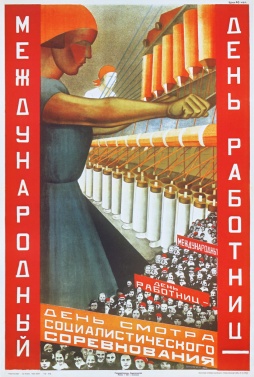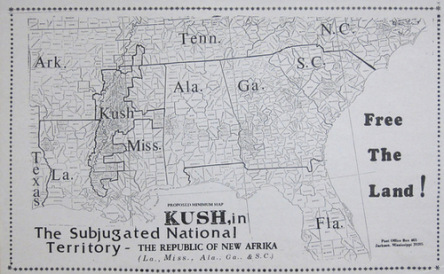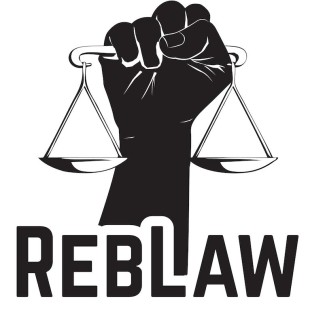
To head off the “[insert revolutionary leader here] DID NOTHING WRONG” crowd and just because Westerners tend to be woefully misinformed, let’s start with describing Burkina Faso under the revolutionary government of President Thomas Sankara and why despite its brief existence of four years it accomplished more than most other attempts at socialism, throughout the globe and history, ever have. All land and mineral wealth was nationalized. 2.5 million children were vaccinated against meningitis, yellow feaver, and measles. Before environmental issues were talked about by most of the world, the Democratic and Popular Revolution planted 10 million trees to fight back against the desertification of the country. In four years Burkina Faso became not only food self-sufficient by dramatically increasing agricultural production but had a surplus due to some crops like wheat being produced at triple the rate. The country spurned the silencing of stigma by being one of the first in Africa to recognize the AIDS epidemic. 700 km of rail were laid to facilitate extraction of manganese by and for the people. Female genital mutilation, forced marriages, and polygamy were banned. Sankara himself was an ardent feminist who promoted contraception and men stepping outside of traditional gender roles by going to the market and cooking. He was the first African leader to appoint women to his cabinet and the revolutionary military actively recruited women. These are just a few of the successes that Sankara and the Burkinabe under the Democratic and Popular Revolution were able to accomplish in the span of four years. And we’re not even touching on how President Sankara was an amazing orator who frequently told the most powerful people in the world that he refused to abide by their colonial rule any longer.
The great successes of Burkina Faso during this time makes it all the more tragic that the revolution fell apart after only four years. There are four major reasons why this happened: (1) President Sankara and the government’s conflict with certain sections of the proletariat, especially teachers, syndicalists, and unions in general; (2) the Committees for the Defense of the Revolution were decentralized and undisciplined as President Sankara himself admitted and was beginning to address, though unfortunately too late; (3) the international hegemony was scared to death that President Sankara was inspiring not only revolution in Burkina Faso but a Pan-African rebellion against the International Monetary Fund and capitalism itself, so they actively sabotaged and undermined the regime (and judging from others like President Lumumba of the Congo, Sankara’s execution very well may have been aided or ordered by these authorities); and finally (4) the Popular Revolutionary Tribunals, an attempt to hand over control of the judiciary to the people for the purpose of establishing real justice. While having the best intentions, these tribunals quickly devolved into kangaroo courts for settling personal scores. This devolution happened because the Popular Revolutionary Tribunals were set up only in recognition of one of the two dialectics of the law: they had authority but not certainty.
Much like the proletarian state is still an instrument of violence arising from class antagonism, a revolutionary legal system cannot exist for long without authority and certainty. Authority is simply the framework by which the law outlines the actions of the state. In the United States there is generally ultimate Supreme Court authority through the Supremacy Clause and the rest of the Constitution, especially the Civil Rights Amendments as applied after Cooper v. Aaron. Cooper was the culmination of a plethora of cases that arose in reaction to Brown v. Board of Education, with Southern courts and governments refusing to recognize federal authority. The Supreme Court simply reaffirmed the federal system of government and while states rights’ are still held as an issue by conservative legal scholars, federal supremacy is to a certain extent accepted across the political spectrum. While the system of authority is at times ridiculously complicated, it functions to uphold the authority of the law as a whole and subsequently the authority and legitimacy of the state itself.
Authority itself though is only the synthesis of the tensions between two intersecting counter-posed relations: legitimacy and power. No authority can preserve its legitimacy without the power to do so, and no authority can exercise its power without the legitimacy to do so. And both of these relations were present at the start of the Popular Revolutionary Tribunals. The courts were legitimate because they were held in the open with direct oversight by the people. The conception of the appeals process and federal oversight are unique aspects of the US legal system that I doubt are in any way necessary for authority, especially in a country as small and far more homogenous as Burkina Faso. They had power because their decisions were binding and final. But of course alone these characteristics could not preserve it. They degraded: trials began to be held in secret and decisions became more difficult to enforce as magistrates and sects of the military began to fight among themselves. And they degraded because of the lack of certainty within the legal system.
Certainty is a bit more complicated. Traditionally certainty is framed as an important aspect of liberal formal equality, that people should know be able to calculate the legal impact on their lives like a set formula. I prefer to consider certainty by how it functions rather than how it is supposed to function. So for example, a liberal person would say due process rights are meant to protect all individuals from having rights taken away without some good reason. I would say due process rights are meant to prevent massive redistribution of wealth and create a certainty (i.e. you go 20 over the speed limit, you get a $1000 ticket) that makes it more difficult to dissent from the authority (you knew the speed limit and that going above it would get you punished, therefore it was your choice).
What limited use ‘due process’ has had for more progressive objectives comes from the need to preserve the legal fiction of equality under the law. In constitutional legal theory this is referred to as ‘representation-reinforcement,’ the theory that our legal-political system works by the laws morphing to match the majority’s will enough to prevent large scale revolts and the destabilization of the government. Its more liberal proponents argue in addition that this means the responsibility of the courts, and especially the Supreme Court, is to make sure there are no impediments of people resolving their problems through the political process. ‘Due process’ is the penultimate civil right of ‘representation-reinforcement,’ in that it is the guarantee of political process rather than the actual remedy of any grievances. And it is important to distinguish ‘due process’ from remedy: after all, what does ‘due process’ matter to the 95% of criminal defendants who are pressured into guilty pleas?
So it is not surprising that Sankara (and ironically the anarchists he despised) would not care much for guaranteeing due process in the new revolutionary legal system. But here lies the contradiction that the Democratic and Popular Revolution unfortunately failed to realize. The bourgeois state does not guarantee ‘due process’ for the sake of defendants: so why would the proletarian state? The purpose of the proletarian state to begin with is as a necessary instrument of violence to preserve the revolution. Its mission is hardly that different from the bourgeois state, the only differences being that power has been reversed and that this reversal will cause the withering away of class itself. Authority and certainty are just as, if not more, needed. So like the current bourgeois state, the proletarian state will use ‘due process’ to create a legal fiction of ‘representation-reinforcement.’ Rather than protecting the individual’s property rights, now it will exist to preserve the right to shared abundance, the abolition of private property. Rather than jumping hoops to receive damages from a corporation that harmed you through its conduct, the corporation would have to jump hoops to establish that every part of itself was contributing to the common good rather than the profits of a select few.
Without this clear principle, the law will quickly become abused as it was by the Popular Revolutionary Tribunals for the settling of private scores, the very reinforcement of individualism and private property relations. Sure, ‘due process’ will give the deposed bourgeoisie access to the political process, but it will only be the sort of access that the proletariat currently has. It is a necessary formalism that has been recognized, with varying degrees of success, by both the Democratic People’s Republic of Korea (Articles 69 and 158) and the Bolivarian Republic of Venezuela (Articles 26, 46, 49, 267, 271, 285, and 337), among many other socialist governments which have managed to thus far survive imperialist plots of regime change (while affording even people as vicious as Leopoldo Lopez due process).
It may seem underhanded or ‘fighting fire with fire,’ but revolution is always a messy process in this manner and arguably not nearly as inhumane as the current social conditions. By nature the process is too convoluted to ever be permanent: it should wither away just like the state itself. President Sankara and the Democratic and Popular Revolution had the best intentions with the Popular Revolutionary Tribunals, but without guiding principles of authority and certainty like ‘due process’ it was doomed to devolve into an anarchistic and individualistic legal system. No doubt the brilliance of the movement and Thomas Sankara could have reversed this course, were it not for the treachery of Blaise Compaoré under the guidance of Western imperialist capitalism.

 I. Division On The Question Of The State
I. Division On The Question Of The State So this post will be a bit different from the others in that it is not about the law. But I thought since today is the beginning of the arbitrary “Women’s History Month,” I might as well use the occasion to give y’all a glimpse into a project I’m working on. That project is Reading The Dialectic Of Sex, a comprehensive companion book to Shulamith Firestone’s The Dialectic of Sex. Firestone is one of the great feminist theorist, and particularly her contribution to feminism is valuable to those of us who are Marxists because it employs historical materialism rather than liberalism, post-structuralism, etc. So see below for a draft of the first chapter, and I would love to hear any feedback:
So this post will be a bit different from the others in that it is not about the law. But I thought since today is the beginning of the arbitrary “Women’s History Month,” I might as well use the occasion to give y’all a glimpse into a project I’m working on. That project is Reading The Dialectic Of Sex, a comprehensive companion book to Shulamith Firestone’s The Dialectic of Sex. Firestone is one of the great feminist theorist, and particularly her contribution to feminism is valuable to those of us who are Marxists because it employs historical materialism rather than liberalism, post-structuralism, etc. So see below for a draft of the first chapter, and I would love to hear any feedback: See my summary of the first day of the conference
See my summary of the first day of the conference  The Rebellious Lawyering Conference (RebLaw) began yesterday at Yale Law School, bringing together law students, lawyers, and community organizers to discuss a plethora of social justice issues. The author attended two of the sessions, which were amazing and yielded interesting legal perspectives and strategies worth elaborating on (and of course there were many simultaneous sessions which you can
The Rebellious Lawyering Conference (RebLaw) began yesterday at Yale Law School, bringing together law students, lawyers, and community organizers to discuss a plethora of social justice issues. The author attended two of the sessions, which were amazing and yielded interesting legal perspectives and strategies worth elaborating on (and of course there were many simultaneous sessions which you can 